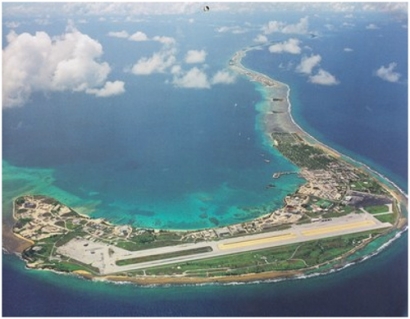
The $40 million Energy Savings Performance Contract awarded for this Phase 1 project includes the design, implementation and long term operation of an island wide Solar PV/Lithium-ion Battery Storage/Microgrid control system and the installation of LED lighting systems at the site. The LED upgrades will reduce existing lighting energy costs by 64 percent and the Solar PV/Battery Storage application will reduce diesel usage by 55 percent for the island of Meck. The Johnson Controls Distributed Energy Storage team developed an integrated battery solution that can be replicated across the Department of Defense. The project enables the site to facilitate the use of renewables inside an existing utility grid that relied primarily on fossil fuel-based solutions.
According to Energy-Storage.News, the battery system is expected to be a 2MW / 3MWh system, coupled with 2.3 MW dc of solar PV, around 8,000 modules on 36 separate arrays.
The project will save the Garrison more than $2.2 million in annual energy and operational savings over a performance period of 20 years.
"This partnership between USAG-KA and Johnson Controls proves that ESPC projects can be cost-effectively implemented at remote sites and this project is the first step in us leveraging the ESPC process to ensure the resiliency and readiness of USAG-KA," said Derek Miller, USAG-KA Energy Manager.
"We are proud of the efforts from the joint JCFS/USAG-KA team to develop this innovative ESPC project that achieves significant energy intensity reductions, infrastructure rehabilitation, and energy resiliency for the U.S. Army. The passion and dedication that went into the project was a collaborative effort that utilized the talents of all team members to succeed despite the challenges of this remote location," said Greg Downes, vice president, Johnson Controls Federal Systems.

